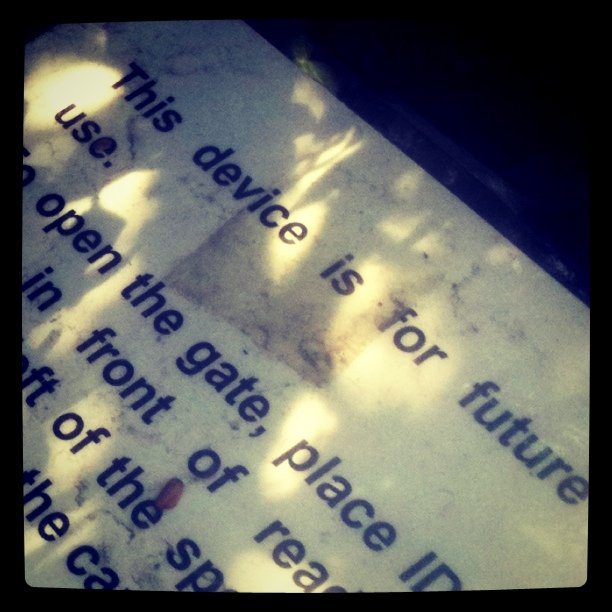I was recently at the 2nd annual Digital Media & Learning meetings, held this year in Long Beach, CA. Sponsored/organized again by Digital Media and Learning Research Hub @ University of California, this year’s meetings extended many of the themes, conversations, debates, and initiatives that emerged at last year’s event in La Jolla, CA. For extensive info on the 2011 meeting, go here; in this post, I’m just setting out to highlight and digest some of the fantastic things I encountered.
The Twitter backchannel was active again this year (#dml2011), and led me to a host of resources: websites, projects, conversations, people, and places. One of the coolest—and this should happen at every conference with parallel sessions—is a set of collaborative & public notes put up on Google Docs by conference attendees. Check it out for a wide range of perspectives and reports on the various sessions (plus, I’m certain it will continue to grow as people add to it…). You can also peruse the online archive of all the twittering/backchannel communication going on throughout the conference here (make sure the “view” limit is pretty high…it should already be set to “10,000,” though there weren’t that many tweets).
One of the more exciting sessions I attended was called the “Ignite Talks,” wherein each participant had under ten minutes to give a brief talk and generate some conversation/thinking. I heard some phenomenally engaging presentations on “grading” via “badges;” using YouTube in a middle school English class to explore representations of race, class, and place through “gangster” adaptations of Hamlet; work with Asperger’s syndrome youth in Second Life; and the ways that parents can/should encourage techon adept/adapted living in a balanced way. And that’s just a sampling of what presenters sprung during the first Ignite session!
I also attended two fantastic workshops. One was called “Thinking through Code: DIY data-mining and the politics of off-topic forums,” and focused on tools for ‘scraping’ data in an ethnographically-oriented manner when doing research with online communities. In lieu of a hand-out, the organizers created a “living” document gathering resources and tips; you can access it here.
Another amazing workshop, sponsored and facilitated by Mozilla, featured plenty of hands-on work with some really great tools. Called, “ Hacking as Learning: A slice of the Mozilla Drumbeat Learning, Freedom and the Web Festival,” the session was basically four concurrent miniworkshops in tinkering, hacking, and playing with emergent tools. One group waded into the realm of Hackasaurus, and learned about/through the often misunderstood realm of web hacking. Another group learned how to “write” with satellites, using a piece of open-source software that allows one to generate text with satellite images (I didn’t catch the name, but check the Google doc collaborative notes linked above…). A third group examined the ‘hacking’ of established/traditional notions of grading-as-assessment strategy in formal education, and proposed some great ideas for reimagining how teachers might think about evaluating student work in the current (and future) cultural environment. Finally, the group I attached myself to worked with Mozilla’s “Web.Made.Movies” project, an emerging platform for creating media-rich or transmedia web-based video content using the HTML5 standards. The authoring tool is called “Butter” (which you can find here), and it is basically a graphical front-end for the Popocorn.js programming environment. If you are adventurous and JavaScript-literate, give it a shot—otherwise, explore Butter (still very much in alpha), which was quite intuitive and fun. Essentially, it allows a user to use JavaScript to call out web-enabled artifacts such as Google Maps, Wikipedia entries, Twitter searches, or Flickr images at specific points in a video timeline. A super-cool idea, and one with many potential applications within and beyond educational settings.
Many more things stood out (or jumped out) during this conference, especially in the “science fair” exhibition space featuring winners of last year’s DML/HASTAC funding competition. Some examples (follow the links for more info than I could provide…):
- GlobalGirlMedia
- YouthAPPlab
- Scratch
- YouthRadio’s Mobile Action Lab
Finally, kudos to AAD 2nd year grad students Alyssa Fisher and Arielle Sherman for winning two volunteer spots at the conference in a highly competitive environment (30 applications/8 volunteer positions = AAD win!)…
All around wonderful conference, and I’m already looking forward to next year’s in San Francisco!



![Reblog this post [with Zemanta]](http://img.zemanta.com/reblog_e.png?x-id=943fb274-30fd-449f-ab7f-66481c7dd5a3)

![Reblog this post [with Zemanta]](http://img.zemanta.com/reblog_e.png?x-id=e565c81e-520f-40e1-aa9a-def820ea83b4)
